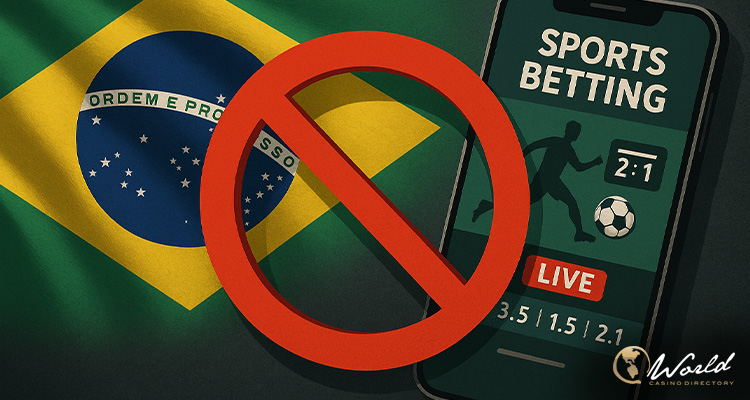Brazil’s Senate is advancing Bill 2.985/2023, a proposal aimed at tightening regulations on gambling advertising. Backed by Senators Styvenson Valentim and Carlos Portinho, the bill responds to concerns over growing betting influence in sports and media and its impact on public health.
Senate moves forward on gambling ad restrictions:
Initially proposed as a complete advertising ban, the bill was reworked by Portinho to implement targeted restrictions. These include bans on betting ads during live sports broadcasts and the display of betting odds outside licensed operator platforms. Print ads and promotional content using active athletes, influencers, or public figures will also be prohibited. Only retired athletes, out of professional sports for at least five years, will be allowed to appear in such promotions.
The bill also restricts advertising content that portrays gambling as a solution to financial problems or as a lifestyle. Animated mascots or AI-generated figures appealing to children are not permitted. Ads teaching or encouraging betting, even subtly, are also banned, as are unsolicited messages or notifications. All ads must include a visible warning: “Betting causes addiction and harm to you and your family.”
In-stadium advertising will be banned unless the operator is a team’s official sponsor, naming rights holder, or kit sponsor, limited to one brand per team. Betting logos will be allowed on uniforms for adult players only; youth kits and child-targeted merchandise are excluded.
Permissible ad times are tightly defined. TV, streaming, and social media ads may only run from 7:30 p.m. to midnight. Radio ads will be allowed from 9:00 to 11:00 a.m. and 5:00 to 7:30 p.m. Ads may also appear 15 minutes before and after live games. Sponsorship logos may be displayed during event announcements between 9:00 p.m. and 6:00 a.m., if no bonuses or odds are shown.
Operators may advertise on websites or apps that users voluntarily access. On social media, ads must target verified users over 18, and users must have an opt-out option. Sponsorship of sports, cultural, or news programs is allowed without time limits if only the sponsor’s logo is shown.
The bill introduces shared responsibility rules, making platforms and advertisers liable if they fail to remove illegal content flagged by the Ministry of Finance.
Football clubs raise economic concerns:
More than 50 football clubs have condemned the bill, warning of a potential R$1.6 billion loss in annual revenue. They argue the restrictions could severely impact the sports ecosystem. However, Portinho countered that sponsorships tied to teams or events are still permitted, while unregulated advertising is being curbed.
Senators Romário and Eduardo Girão backed portions of the bill, the former advocating for ex-athletes to be included in ads, and the latter warning of gambling’s dangers, comparing its spread to nicotine addiction.
Due to delays in forming the Communication and Digital Law Committee, the bill is going straight to a full Senate vote. If passed, it will move to the Chamber of Deputies. Senator Leila Barros confirmed support for fast-tracking the process.
While Senator Valentim admitted the final text fell short of his original vision, he sees it as an important warning to the market. “We couldn’t cut the problem at the root, but we trimmed it to see what happens,” he said, as Games Magazine Brazil reported.


